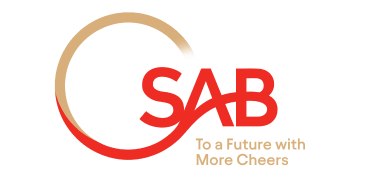THE MOUNTING CONSEQUENCE OF THREE ALCOHOL BANS
The South African alcohol industry, which contributes R173 billion or 3.4% to the country’s gross domestic product (GDP), lost R21.8 billion in revenue during the first two alcohol bans in 2020. An extended third ban is currently underway. With another implementation of a ban spanning at least seven weeks this increases the loss to R30.4 billion.
How does this affect the average South African?
The first two bans saw more than 165 000 jobs lost across the entire industry value chain resulting in a possible additional 100 000 people slipping into poverty. The current ban will serve only to exacerbate the situation. This is a calamitous outcome for South Africa, which is already straining under a shockingly high unemployment rate.
At South African Breweries (SAB), we lost a substantial percentage of our annual production in 2020 and, as a result, cancelled a cumulative 5 billion in investments. South Africa missed out on local brewer infrastructure development that could have given the economy a boost when it needed it most. With the new year heralding a third and, as yet, indefinite ban, we had to cancel a further R2.5 billion of capital expenditure projects earmarked for 2021. South Africa missed out again – an outcome contrary to the country’s much-needed investment drive to kick-start an economy in the doldrums.
But the impact doesn’t stop there.
South Africa’s GDP has shrunk considerably due to an assortment of pandemic- and lockdown-related challenges. But now an estimated R5.8 billion in excise taxes was lost to the fiscus from the alcohol industry during the two alcohol bans in 2020. Due to the current sales ban and the impact it has on the entire production process, excise losses are mounting.
It’s easy to joke about pineapples and yeast being sold prominently in groceries stores to brew the infamous pineapple beer, but the increase in home brewing has led to a number of unfortunate deaths across the country. In fact, May last year saw, nine people were killed by lethal moonshine mixes in the Eastern Cape.
This practice is so dangerous to citizen health and safety that the Congress of Traditional Leaders of South Africa (Contralesa) reiterated its call for all traditional leaders to help put a stop to the brewing and sale of home-made alcohol.
A Euromonitor study conducted in 2018 estimates that illicit alcohol accounts for around 14.5% of absolute alcohol sold in South Africa, costing the fiscus more than R6,4 billion a year in lost tax revenue. Alcohol bans have been a boon to counterfeit and illegal alcohol peddlers who put lives of South African consumers at serious risk with their unregulated products.
Illegal alcohol trade has become so organised and brazen that entire e-commerce infrastructures are set up - these digital retail platforms allow consumers to buy illicit alcohol from the comfort of their home, using credit cards for online purchases.
At SAB, our primary aim is to protect our 5 700-strong workforce and the more than 250 000 livelihoods that depend on SAB every day. But how do we claw our way back from the damage this third ban is inflicting?
Even if the ban is lifted tomorrow, we face long-standing consequences across multiple sectors upstream and downstream of our production line – from farmers and agricultural labourers to glass and mould manufacturers, restaurateurs, tavern owners, hoteliers and entertainment entrepreneurs.
To put it into perspective, with a 125-year-long South African heritage our almost 100% locally-sourced business includes 3 739 suppliers – almost a third of which are SMMEs – who support more than 140 000 jobs. SAB sources agricultural products from more than 1 200 farmers of barley, hops, fruit and maize as well as grape growers, of which 757 are emerging farmers.
Further upstream, the legal alcohol industry accounts for 85% of the glass packaging industry’s sales – a sector which suffered losses of R1.5 billion during the first alcohol ban alone. According to Mike Arnold, CEO of glass bottle maker Consol, the glass packaging industry stands to lose a further R1.5 billion in sales if the current ban continues for much longer.
The industry and the country simply cannot afford to lose any more jobs. The economic impact has been and continues to be catastrophic. It will take the industry – and the economy – years to recover from the effects of the previous two bans. Every day the third ban continues, the road to recovery gets longer and harder.
At SAB, we are fully committed to being active participants in driving a solution that has everyone’s best interest at heart. However, any solution agreed on will not provide a short-term fix. It will take years to get this industry back on track as a key economic stimulator. South Africa cannot afford to waste any more time – the economic consequences are too grave.

